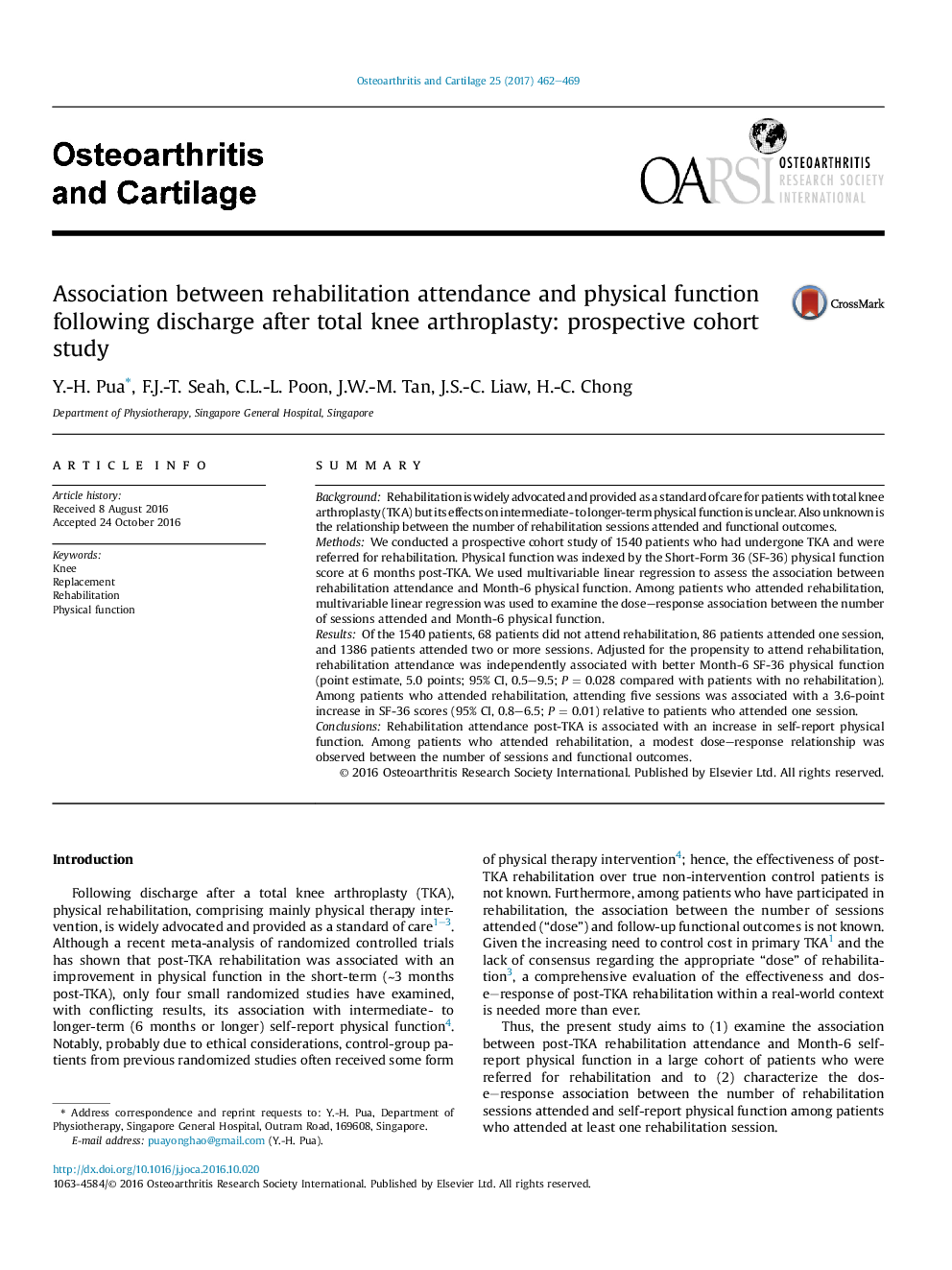| Article ID | Journal | Published Year | Pages | File Type |
|---|---|---|---|---|
| 5669207 | Osteoarthritis and Cartilage | 2017 | 8 Pages |
SummaryBackgroundRehabilitation is widely advocated and provided as a standard of care for patients with total knee arthroplasty (TKA) but its effects on intermediate- to longer-term physical function is unclear. Also unknown is the relationship between the number of rehabilitation sessions attended and functional outcomes.MethodsWe conducted a prospective cohort study of 1540 patients who had undergone TKA and were referred for rehabilitation. Physical function was indexed by the Short-Form 36 (SF-36) physical function score at 6 months post-TKA. We used multivariable linear regression to assess the association between rehabilitation attendance and Month-6 physical function. Among patients who attended rehabilitation, multivariable linear regression was used to examine the dose-response association between the number of sessions attended and Month-6 physical function.ResultsOf the 1540 patients, 68 patients did not attend rehabilitation, 86 patients attended one session, and 1386 patients attended two or more sessions. Adjusted for the propensity to attend rehabilitation, rehabilitation attendance was independently associated with better Month-6 SF-36 physical function (point estimate, 5.0 points; 95% CI, 0.5-9.5; PÂ =Â 0.028 compared with patients with no rehabilitation). Among patients who attended rehabilitation, attending five sessions was associated with a 3.6-point increase in SF-36 scores (95% CI, 0.8-6.5; PÂ =Â 0.01) relative to patients who attended one session.ConclusionsRehabilitation attendance post-TKA is associated with an increase in self-report physical function. Among patients who attended rehabilitation, a modest dose-response relationship was observed between the number of sessions and functional outcomes.
